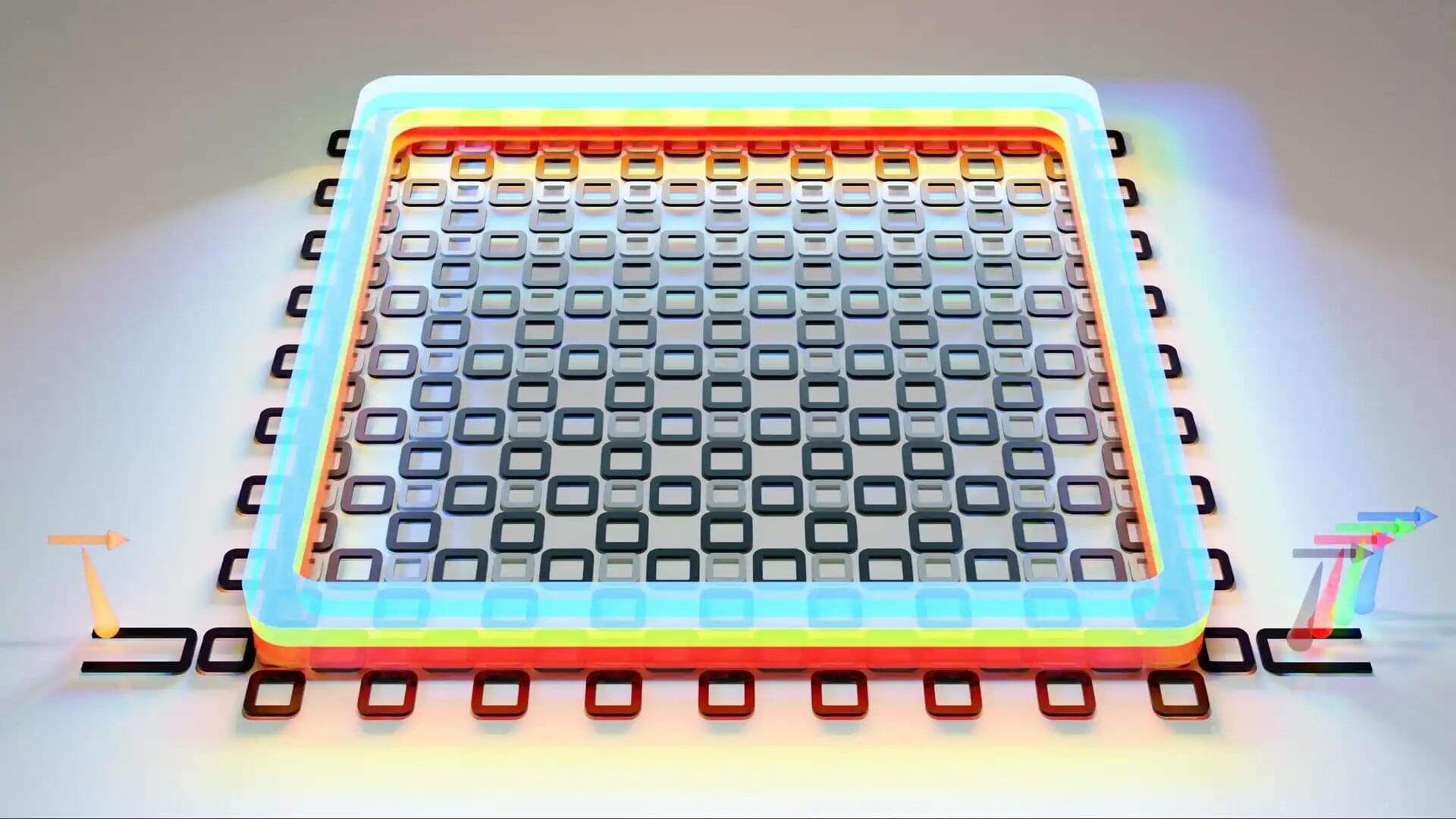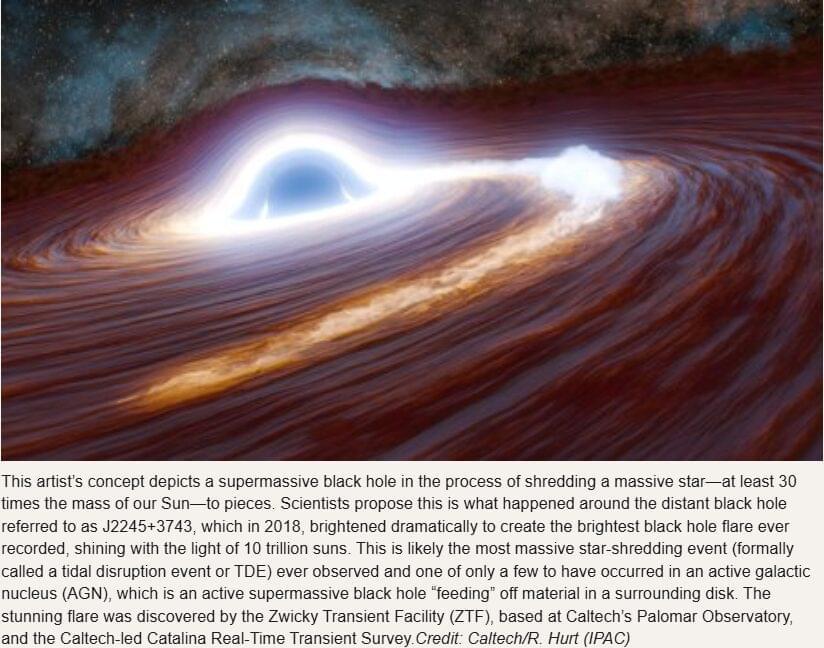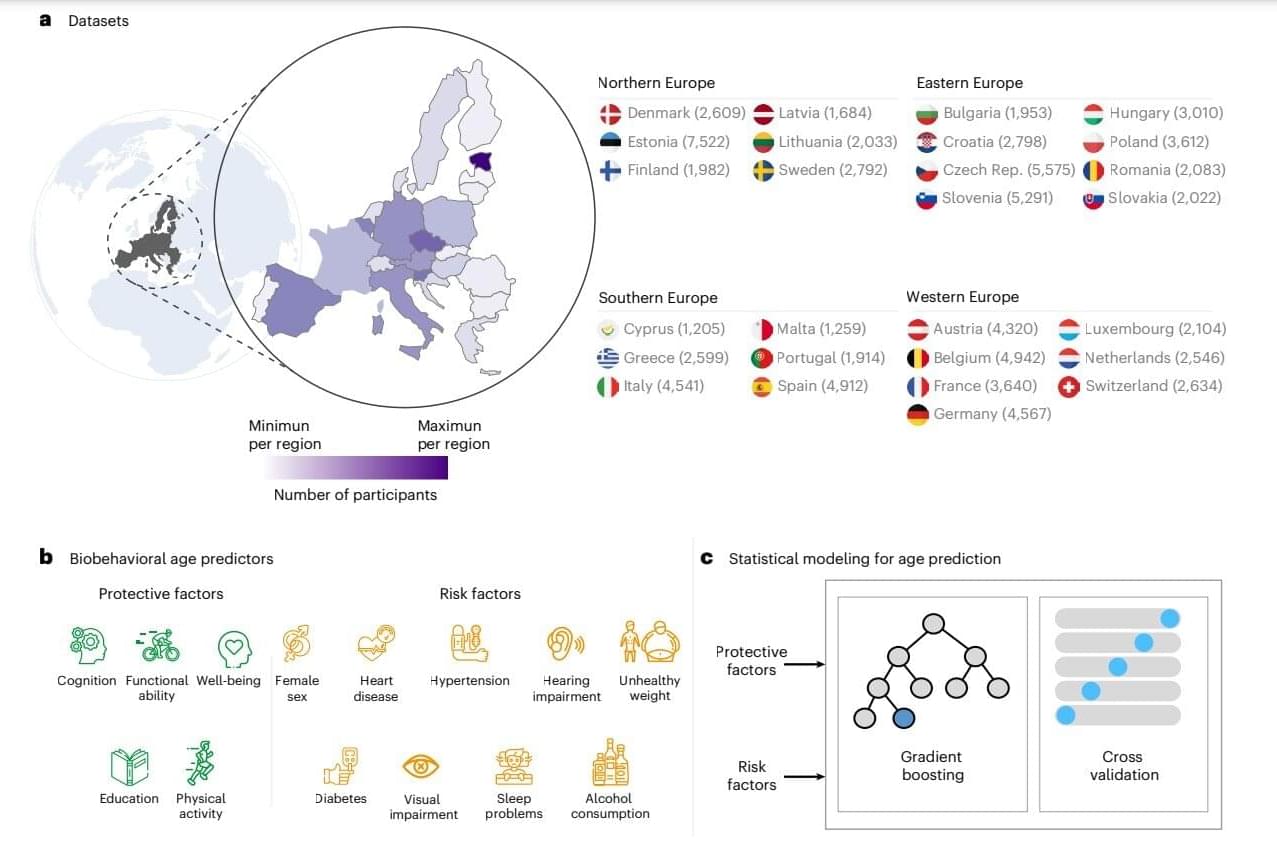Over the past several decades, researchers have been making rapid progress in harnessing light to enable all sorts of scientific and industrial applications. From creating stupendously accurate clocks to processing the petabytes of information zipping through data centers, the demand for turnkey technologies that can reliably generate and manipulate light has become a global market worth hundreds of billions of dollars.
One challenge that has stymied scientists is the creation of a compact source of light that fits onto a chip, which makes it much easier to integrate with existing hardware. In particular, researchers have long sought to design chips that can convert one color of laser light into a rainbow of additional colors—a necessary ingredient for building certain kinds of quantum computers and making precision measurements of frequency or time.
Now, researchers at JQI have designed and tested new chips that reliably convert one color of light into a trio of hues. Remarkably, the chips all work without any active inputs or painstaking optimization—a major improvement over previous methods. The team described their results in the journal Science on Nov. 6, 2025.








